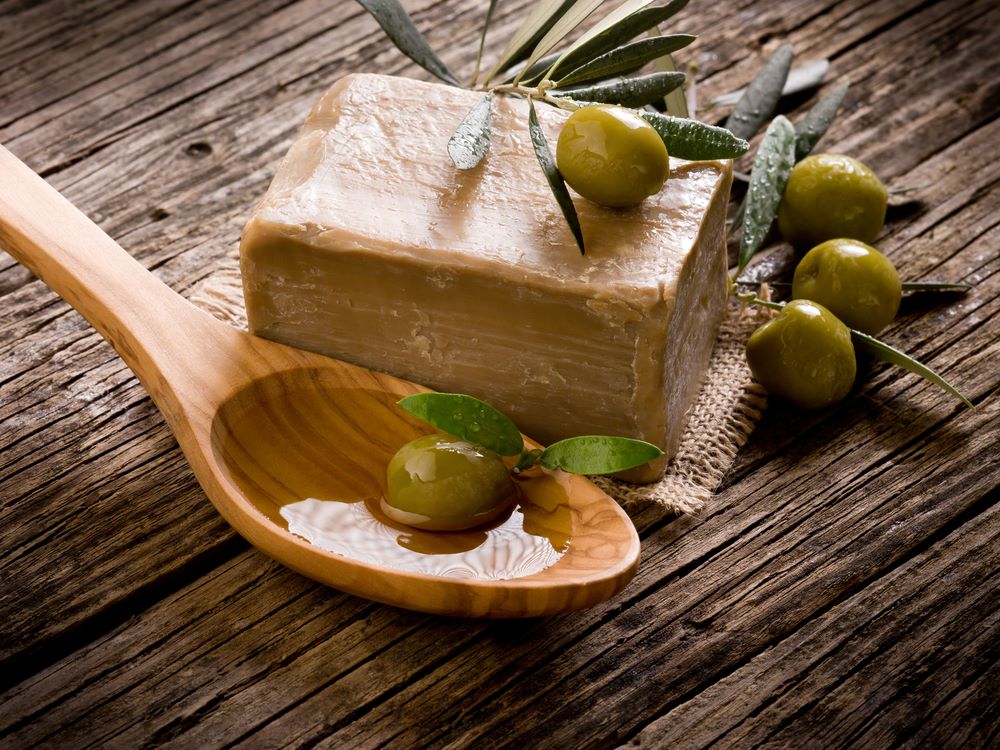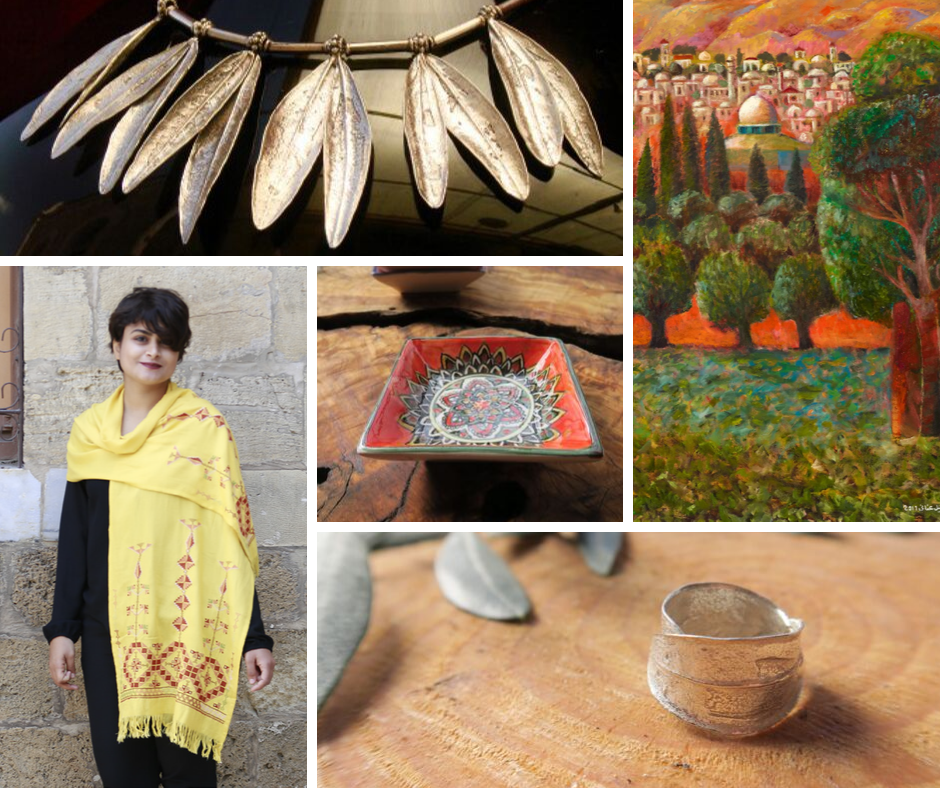
Olive Oil Soap: The benefits, how to make at home? and more
A background history on the production of olive oil soap
When you think about it, it's such a wonder that this tree brings to Palestine. We eat its fruit, its oil has tens of uses and health benefits, and we have an industry of its wood, and Silver Zaytouna makes jewelry out of its leaves!! And as we now come close to the olive harvest season which starts in October and lasts until November. It feels right to know some more about Olive Oil Soap, which helps us to take care of our bodies and appreciate the love of this tree.
When the Egyptian empire began, before soap was invented, ancient Egyptians used olive oil to clean their skin. Dirt on the skin would stick to the oil and both would be scraped off. The first castile olive oil soap was produced in Mesopotamia, where early civilizations learned to add soda ash to their olive oil to make the first handmade olive oil soap.
Palestinian olive oil soap is made from powdered ashes of the barilla plant (qilw) which grows along the banks of the River Jordan, as well as local lime, known as sheed. These ingredients act as a sodium compound to solidify the mixture of oil and water, in order to create 100% olive oil soap.
Why is Nablus famous for Olive Oil Soap, hence called Nabulsi Soap?
Virgin olive oil is the leading agricultural product of Nablus. Therefore, the people of Nablus have been producing olive oil soap for centuries, originally within households, then in small factories dating back to the 10th century. Since the 14th century, Nabulsi Soap has been considered a significant industry in Nablus, supplying half of Palestine with soap. It didn't take long for Nabulsi Soap to gain international recognition, with exports reaching Queen Elizabeth I of England, who praised it immensely. By the early 19th Century, Nablus was the central supplier of soap within the Fertile Crescent. Many believe that the secret to Nabulsi soap is the purity of the ingredients and the production quality
What are the benefits of Nabulsi Soap?
People have been using Nablusi soap for millennia, because of its simplicity and numerous benefits. Olive oil is a fantastic all-natural alternative to the common soap bought from your neighborhood market.
Benefits of Olive Oil Soap for Face and Skin:
- Promotes clean and moisturized skin in the most natural way possible
- Promotes skin cell regeneration
- Acts as a natural remedy for dark spots and well as wrinkles (sets deep into the skin)
- Natural and gentle makeup remover.
- Helps relieve dry skin through exfoliation and prevent skin ailments such as psoriasis, acne and eczema.
- A gentle cleanser for sensitive skin types and children.
- Antioxidant properties help repair skin damage through the elimination of free radicals.
Benefits of Olive Soap for Hair:
- Effectively moisturizes the scalp, protects against dry hair and split ends, and eliminates dandruff.
- Delays the appearance of gray hair, promotes hair vitality, softness, and natural shine.
- Nourishes hair from roots to ends, prevents hair loss and strengthens hair.
As you can see, olive oil soap benefits a range of skin types, from young to old.
Over the years artisans such as those in the Aseela Cooperative have incorporated other natural ingredients to give their soaps scents as well as added benefits for the skin. They add chamomile, thyme, dead sea mud, and camel milk (link here) that include calming scents as well as added moisturizing effects. The Al Bader factory in Nablus makes their olive oil soap and adds in goat’s milk (link here), a valued animal in Palestine.
Health Benefits of Goat Milk for the Skin
- It contains lactic acid and alpha-hydroxy acid which gently remove dead skin cells and promote their regeneration.These properties are ideal for reducing wrinkles, signs of aging, skin pigmentation and color changes.
- Keeping the skin hydrated. Lactic acid in milk effectively moisturizes the skin by increasing its water retention capacity.It is also rich in amino acids that enhance water retention and moisture deep within the skin.
- It contains many antioxidants that protect against free radicals that can damage skin, and promotes the production Collagen.
Olive oil soap: A minimalist choice
The versatility of olive oil soap makes this single bar a minimal, natural and economical choice for any household. 100% olive oil soap has almost no scent and can be used as an all-purpose cleaner. Although olive oil soap is most commonly used on the hands, face, and body, it also works great when cleaning your hair and clothes, and works wonders on roughy stains! Olive oil soap liquid is especially useful for mopping floors and cleaning around the house, it is even safe to use on your pets!
Olive oil soap recipe
Palestinian women have passed down traditional crafts(wo)manship from generation to generation, from cross stitching, which we will discuss in another blog post, to making Nablusi soap at home. Women in Palestine have been teaching their family how to make olive oil soap at home for centuries, and the practice is still in place today. This is an easy to follow, straightforward DIY to making olive oil soap at home, which you can follow to make plain olive oil soap or create variations based on your preferences.

Let’s Get Started Making Olive Oil Soap aka Castile Soap
In order to transform olive oil into a solid for bar, it must first react with an alkali in a process called saponification. The first step in olive oil soap making is either buying solidified olive oil, or saponifying the oil yourself with lye. If you choose the latter, you must wear gloves and goggles, because lye can easily burn or irritate the skin. You can also make liquid olive oil soap by using Potassium Hydroxide (KOH) instead of Lye (NaOH).
Feel free to add additional ingredients like Al Bader or Aseela Women’s Cooperative, to experiment with different scents or beauty treatments!
Ingredients & Tools:
- 438 grams olive oil (organic, virgin, or extra virgin depending on your preferences) - Note that Olive Oil has to be 6 times the quantity of Sodium Hydroxide
- Lye Mixture:
- 73 grams sodium hydroxide (NaOH)
- 215 grams distilled water
- Aromatic leaves (optional)
- Iron pot
- Mold
-
Wooden spoon
Watch in video: how to make olive oil soap?
Available Soaps at Handmade Palestine
At Handmade Palestine, we provide handmade olive oil soaps from Nablus as well as Bethlehem. Aseela Women’s Cooperative in Bethlehem provides women and their families from the Dheisha refugee camp with economic opportunity as they create olive oil soaps with wild leaves, flowers, and even camel’s milk. Al Bader Factory in Nablus creates a classic Nabulsi soap from their secret family recipe, which includes some of the finest Nablus olives.








2 comments
The guide is really informative, It shed light on all sort of useful impacts of Olive oil soap. Great read…
Sufyanah
Hi, I was watching Palestine soap making but it is totally different from the one I am used to make. Usually it takes much longer to make, more ingredients, ph testing, longer cooking if is hot process or even cold. This recipe has a short time, very min stirring and it is done!! I love it. But I am wondering about if this soap will make lather. I know that the olive oil is a cleanser but by itself doesn’t make lather and will make the end soap soft. Can I add coconut oil or castor oil to this recipe? Thank you
Maria
Leave a comment
This site is protected by hCaptcha and the hCaptcha Privacy Policy and Terms of Service apply.